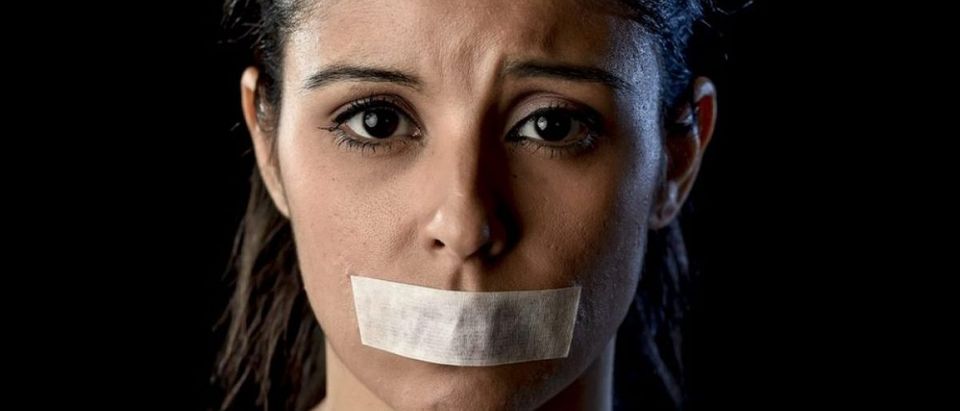Earlier this year, Middlebury College was besieged by left-wing protesters who objected to the speaking event of renowned political scientist and American Enterprise Institute scholar Charles Murray.
Murray, who spoke about how the plight of the white-working class explained the outcome of the 2016 election, was forced to deliver his address via livestream as hecklers hurled profanity. Activists assaulted both him and professor Allison Stanger, who hosted the event, as they were leaving campus.
In response to the violence, Middlebury is instituting a set of “interim” rules for “scheduling events and invited speakers.” However, instead of punishing students for their violence, the new policy instead incentivizes violent protests (or even the threat of violent protest) against speakers invited to campus.
Per a Monday report from The College Fix, which brought the policy to light, the interim policy contains a section on “risk assessment” that is performed on invited speakers and determines how likely they are to face “threats or violence.” It reads:
In those exceptional cases where this review indicates significant risk to the community, the president and senior administration will work with event sponsors to determine measures to maximize safety and mitigate risk. Only in cases of imminent and credible threat to the community that cannot be mitigated by revisions to the event plan would the president and senior administration consider canceling the event.
As the ACLU noted following the events of the Antifa shutdown of Ann Coulter’s speech at UC Berkeley in April, such a cancellation is considered a “heckler’s veto,” and violates a speaker’s First Amendment rights.
Ari Fleischer, former press secretary to President George W. Bush and a Middlebury alum, decried the interim policy on Twitter.
Middlebury Provost Susan Baldridge released a statement on Friday regarding the interim policy, in which she failed to mention the events that saw Murray and Stanger attacked. Stanger was sent to the ER with a neck injury she received during the assault.
Instead, Baldridge references “tragic events this summer in Charlottesville and other recent threats to the safety of college and university campuses.” She does not clarify how the controversial provision would not empower activists to send threats of violence to any speakers they dislike.


